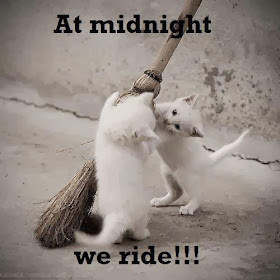Oh dear, some not very bright people deserve a few tricks.... LOL
Quiz Questions, Wrong Answers:
UNIVERSITY CHALLENGE (BBC2)
Jeremy Paxman:
What is another name for 'cherrypickers' and 'cheesemongers'?
Contestant:
Homosexuals.
Jeremy Paxman:
No. They're regiments in the British Army who will be very upset with you.
BEG, BORROW OR STEAL (BBC2)
Jamie Theakston:
Where do you think Cambridge University is?
Contestant:
Geography isn't my strong point.
Jamie Theakston:
There's a clue in the title.
Contestant:
Leicester
BBC NORFOLK
Stewart White:
Who had a worldwide hit with What A Wonderful World?
Contestant:
I don't know.
Stewart White:
I'll give you some clues: what do you call the part between your hand and your elbow?
Contestant:
Arm
Stewart White:
Correct. And if you're not weak, you're...?
Contestant:
Strong.
Stewart White:
Correct - and what was Lord Mountbatten's first name?
Contestant:
Louis
Stewart White:
Well, there we are then. So who had a worldwide hit with the song What A Wonderful World?
Contestant:
Frank Sinatra?
LATE SHOW (BBC MIDLANDS )
Alex Trelinski:
What is the capital of Italy ?
Contestant:
France.
Trelinski:
France is another country. Try again.
Contestant:
Oh, um, Benidorm.
Trelinski:
Wrong, sorry, let's try another question. In which country is the Parthenon?
Contestant:
Sorry, I don't know.
Trelinski:
Just guess a country then.
Contestant:
Paris.
THE WEAKEST LINK (BBC2)
Anne Robinson:
Oscar Wilde, Adolf Hitler and Jeffrey Archer have all written books about their experiences in what: - Prison, or the Conservative Party?
Contestant:
The Conservative Party.
BEACON RADIO ( WOLVERHAMPTON )
DJ Mark:
For 10, what is the nationality of the Pope?
Ruth from Rowley Regis:
I think I know that one. Is it Jewish?
UNIVERSITY CHALLENGE
Bamber Gascoyne:
What was Gandhi's first name?
Contestant:
Goosey?
GWR FM ( Bristol )
Presenter:
What happened in Dallas on November 22, 1963?
Contestant:
I don't know, I wasn't watching it then.
PHIL WOOD SHOW (BBC RADIO? MANCHESTER)
Phil:
What's 11 squared?
Contestant:
I don't know.
Phil:
I'll give you a clue. It's two ones with a two in the middle.
Contestant:
Is it five?
RICHARD AND JUDY
Richard:
On which street did Sherlock Holmes live?
Contestant:
Er. ... ...
Richard:
He makes bread . . ..
Contestant:
Er .. ......
Richard:
He makes cakes . . ..
Contestant:
Kipling Street?
LINCS FM PHONE-IN
Presenter:
Which is the largest Spanish-speaking country in the world?
Contestant:
Barcelona.
Presenter:
I was really after the name of a country.
Contestant:
I'm sorry, I don't know the names of any countries in Spain ..
NATIONAL LOTTERY (BBC1)
Question:
What is the world's largest continent?
Contestant:
The Pacific.
JAMES O'BRIEN SHOW (LBC)
James O'Brien:
How many kings of England have been called Henry?
Contestant:
Er, well, I know there was a Henry the Eighth ... ER. ER ... Three?
PAUL WAPPAT (BBC RADIO NEWCASTLE )
Paul Wappat:
How long did the Six-Day War between Egypt and Israel last?
Contestant (long pause):
Fourteen days.
RADIO DEVON
Presenter: What is the traditional fruit for Hallowe'en?
contestant:
Easter eggs?
 |
| Blessed Be to all who have crossed the Rainbow Bridge and are waiting to greet us again one day |
Hallowe'en is not a spooky time to be afraid of ghouls, ghosts and witches.
It is a time to remember family and friends -and beloved pets - who have gone ahead of us to the Other Side.
Remember the good times, the smiles and the laughs and think of those we miss with affection.
A Prayer for Passing : click here for the Link



























